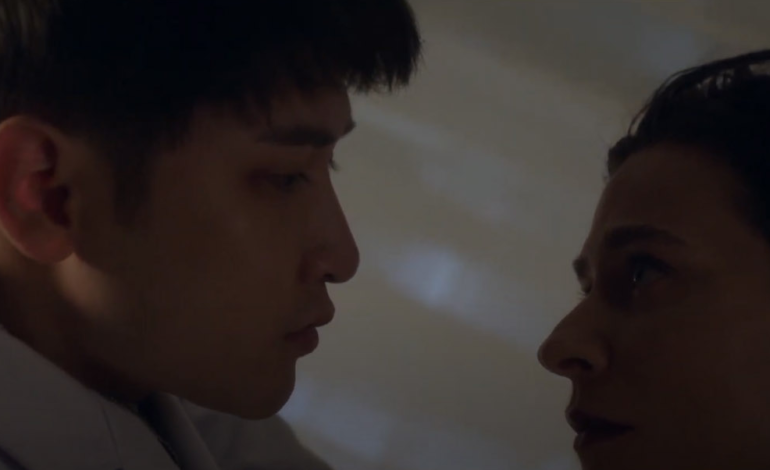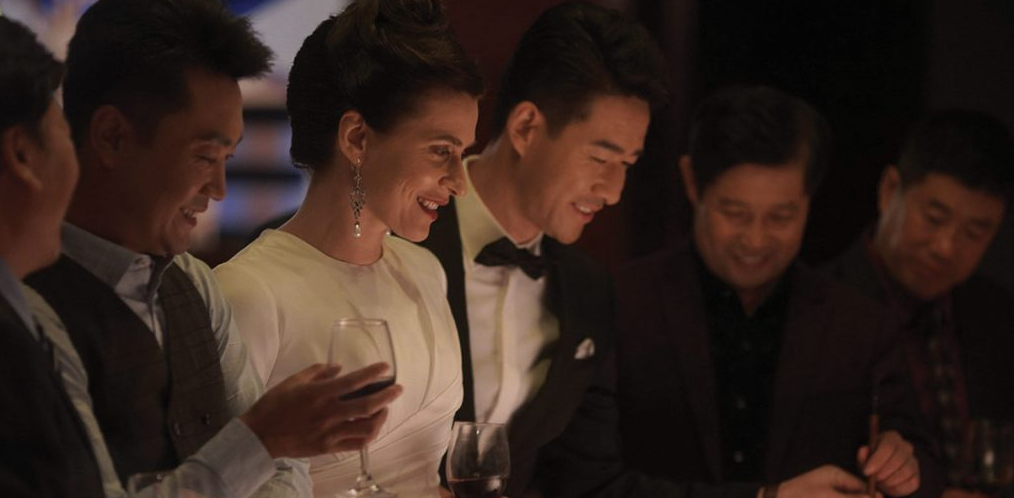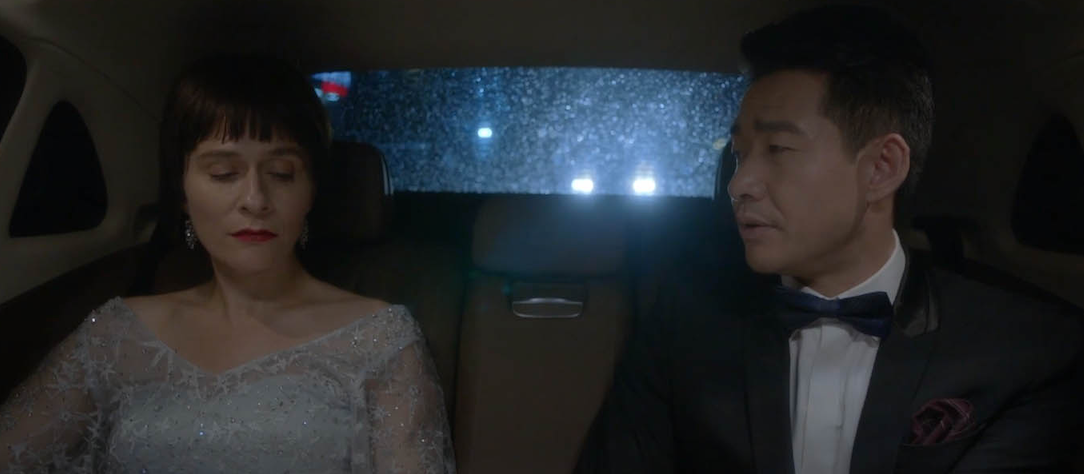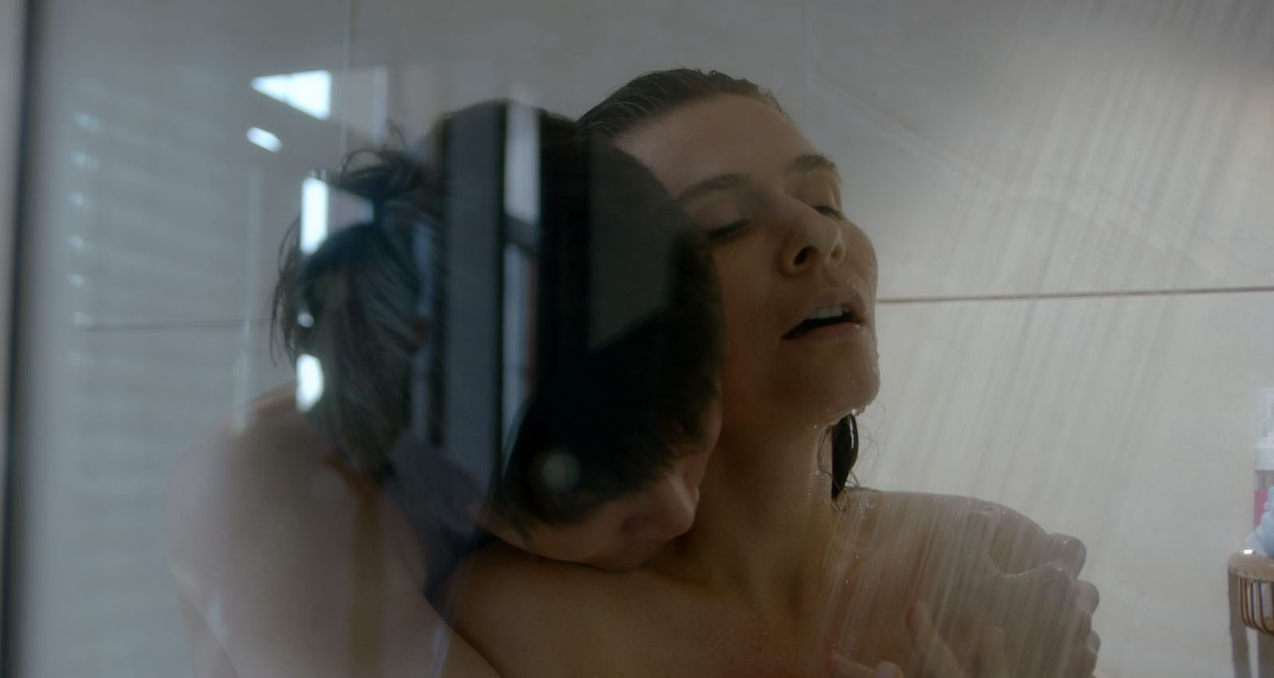

Written, directed, produced, and starring Aleksandra Szczepanowska in her feature debut. Touch (2020) follows Fei Fei (played by Szczepanowska), a Caucasian, Western woman living an affluent, cosseted existence as the wife of hard partying executive Zhang Hua (Jun Yang) and mother to young son Mo Mo (Beckhan). But she feels deeply alienated from the country she loves, her friends and husband. Under mysterious circumstances, she meets Bai Yu (Jiangwei Yuan), a blind Chinese masseur, and commences an intense love affair. When Fei Fei withdraws, Bai Yu grows obsessive, possessive, and possessed. Finally, the characters find the demons they’ve created can only implode in a clash of mixed desires and violent impulses that threaten Fei Fei’s privileged, fragile existence and family.
It’s incredible how Szczepanowska, in her feature debut, not only directed and wrote the film, but also starred and produced it. Though she had done that before, for her 2012 short film, Let It Ring, that much involvement and dedication to the project is certainly ambitious, however, I think it more than pays off. Aleksandra Szczepanowska was excellent as Fei Fei. Though she has acted before, it was all in short films and one episode of “Gotham.” However, the amount of subtlety and strength she brought to the character all felt so purposeful While I didn’t always feel for the character, I always understood why she did everything she did. I could see how important getting a permanent residence was to her, I could see how emotionally distant she felt from her husband, and I could see how this lack of control in her own life leads her to Bai Yu, who gives her that love and attention she craves.


This leads me to the script. It’s not too often you see a story about a caucasian woman living in a predominantly nonwhite country, so right off the beginning you have a unique predicament for the main character. Not only that, but she wants to become a permanent resident and call China home, which I think is a good set-up for Fei Fei’s initial “want vs. need” conflict and what puts the initial plot in motion. I also like that her husband Zhang Hua isn’t abusive and unloving towrds Fei Fei, but more so distant and not completely honest. I think it’s interesting how the cultural differences manifest between them. Zhang Hua doesn’t believe it’s her place as his wife to always ask or always have to know where he is, and quite possibly it’s because she grew up in a different culture, so she does not sit idly by but even goes so far as to follow Zhang Hua to see where he’s really going and to try to include herself in some of the games he plays with his friends. Likewise, there’s also another really clever character conflict between them. While Fei Fei wants to live in China, Zhang Hua wants to leave because of his past.
Something else I really loved about the story was the romance between Fei Fei and Bai Yu. First because both Szczepanowska and Jiangwei Yuan (in his first IMDb credit) were great actors. I’m not sure if Jiangwei Yuan is blind in real life as his character is, but either way he was fantastic. The writing as well as the acting really helped their relationship to progress in a really believable way. Having Bai Yu be blind I thought was an interesting choice, but one that gave these two characters a reason to be drawn to eachother by more than just sight. It makes their more intimate moments feel a lot stronger and more meaningful. Another choice I thought paid off was when Fei Fei finds out if she got her permanent residence and decides to break off the affair. From that point on, and seeing how Fei Fei’s relationship with her husband has evolved, you feel for both of these characters. You understand how devastating it is for both of them, and even when Bai Yu starts to stalk her, you still do understand his motivations, but you also understand hers and why she wants to distance herself from him.


Another great thing about this film was the cinematography from Ji Wei, particularly the camera movements. That’s not to also discount some really interesting and flashy uses of color and framing that was really clever and at times somewhat uncanny (in an impactful, dreamlike way). But there were so many amazing sequences where the camera would sweep across the room or follow Fei Fei from one room to the next, constantly shifting the angle and positioning, giving the scene a really unique and immersive energy to it. There were also some interesting choices with the editing in which some scenes were very distorted and hazy, almost giving this film a surreal dreamlike quality to it.
I think my biggest issue with the film is the last third, after Bai Yu and Fei Fei break-up. There was this slight tonal shift during this section where Bai Yu starts to stalk Fei Fei. He shows up in her house, and at a few locations he knows Fei Fei will be with her son. I think this could have worked if it was more like Fei Fei was just imagining Bai Yu in her home and around town, and his image was tormenting her, but we as the audience do see Bai Yu multiple times in her house or other characters notice him, showing that it is meant to all be real. Anyways there are parts where he will evade Fei Fei’s gaze or disappear from a corner and appear in another. Keep in mind that Bai Yu is blind, so we are supposed to believe that this blind man is able to effortlessly move around this large mansion without being noticed like some supernatural horror villain. I understand why he might try to torment or follow Fei Fei after she broke up with him, but the way it’s executed just feels incredibly silly and out of place. In the second to last scene when Bai Yu shows up I think it really works, but I think before that it would have been much more effective as psychological torment the two characters were facing.


Verdict: 3.5 out of 5
A lot of the last third of Touch (2020) leading up to the resolution does not work for me and I think takes the film in a direction that feels a bit silly and out of place. However, the brilliant writing, characterization, great acting, and incredibly dynamic and immersive cinematography and camera movements more than make up for it. There’s also the unique cultural angle of the film that I’ve rarely seen that also gives the main character extra depth and a distinct motivation for why she does what she does that is also relevant to the cultural disparity she faces. If there’s anything to take a way from this film, it’s that it’s an ambitious romantic thriller told from a unique perspective, and that Aleksandra Szczepanowska is a triple threat talent to look out for.
